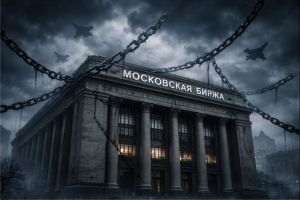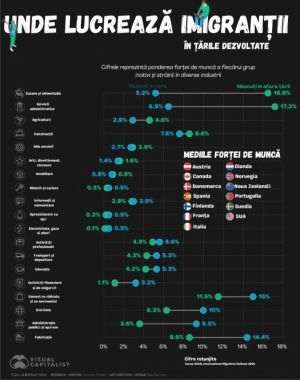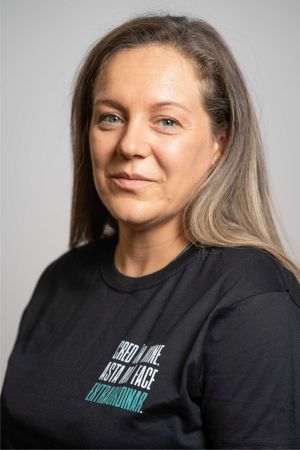The Ministry of Economy will ask the Ministry of European Projects and Investments to notify the European Commission so that the fourth edition of the Start-Up Nation program is financed from European funds, announced Radu Ştefan Oprea, the Minister of Economy, Entrepreneurship and Tourism, yesterday, at the "Romania" debate the producer in the new economic paradigm" organized by the Governance Course in partnership with the Industry and Services Commission of the Chamber of Deputies.
Radu Oprea declared: "If we look at the entrepreneurship side, we have very good results. On Start-up Nation we have a return of 155% on the first edition, 126% on the second edition, over 91% of the companies are still active five years after their establishment, and that is why we are in discussions with the Ministry of Investments and European Projects to notify the European Commission and start the fourth edition of Start-up Nation with European funds".
The Minister of Economy showed that, if we look at the statistical figures, things do not look bad, because we have reached a record of employment, which shows that the respective market is in a permanent dynamic and is effervescent, and stated that one of the basic pillars of the economic transformation of our country will be the transition to green energy, a sector in which the central authorities want many components for energy projects, including nuclear power plants based on SMR technology, to be produced in our country, in order to thus reducing the trade balance deficit.
Radu Oprea said: "Trade is mandatory, because otherwise the economy cannot develop, but we look with concern at the trade balance deficit, the twin deficits and we want to import less and produce more in the country. That is why we have state aid schemes to meet this need and, for example, MADR came up with the Investalim program, we, at the Ministry of Economy, with the Construct Plus program. A program for the manufacturing industry follows. Why did we make programs for the food industry and for construction? Because we invest a lot, we have infrastructure projects financed from European funds, where currently over 80% of the products used are imported. It is obvious that we need to have value-added products in Romania, to have shorter supply chains for producers. Then, we want the investments made in Romania to be for at least an average period of time. In none of the programs mentioned above, the criterion of jobs is not a determining criterion, because we want investors to come with competitive, energy-efficient technological processes that make a difference".
The Minister of Economy, Entrepreneurship and Tourism stated that, just as we have programs financed from European funds for the construction of wind farms, photovoltaic parks or for the energy efficiency of public buildings, there is also a need for European funding for programs that support the re-engineering of companies, that is, to track the energy efficiency of the technologies used, a fact that will increase the competitiveness of companies in our country.
Mr. Radu Oprea specified that the IT sector is a very competitive one and said that 200,000 employees in this sector produce between 6% and 8% of the Gross Domestic Product, adding: "We have Romanians who have been working for over 5 years in the field of development and use Artificial Intelligence and there is even a community of 5000 Romanians working in AI. But I wish we had more intellectual property registered in Romania. Here we can bring added value to the Romanian economy: to have more innovation, more intellectual property to move from the prototype stage to the product stage".
The Ministry of European Investments and Projects wants to discuss with the officials of the European Commission the situation of companies that do not have a positive balance sheet and to find a solution through which they too have access to the programs with European funding through which they can renew their technology or increase their competitiveness, he said , in the same debate, Răzvan Popescu, undersecretary of state in MIPE.
Răzvan Popescu also said: "On the multiannual financial framework 2021-2027, calls for projects with a total value of 22.8 billion euros have been launched so far, of which 14 billion euros represent the contribution from the European Union, which means approximately 45 % of our country's allocation for that period. In the first quarter of 2024, 190 project calls are to be launched, with a total value of around 10 billion euros, in areas such as research, development, innovation, SMEs and entrepreneurship, energy and energy efficiency, urban mobility, education, sustainable development, risk and disaster management, biodiversity, etc. To help beneficiaries have access to funds that as quickly as possible and as transparently as possible, we periodically publish on the MIPE website the calendar of calls to be launched. As for the business environment, it will be supported through grants and financial instruments for the designation of new business models and the expansion of production capacities, the development of entrepreneurship by stimulating the establishment of new enterprises".
Related to the added value necessary for the national economy, Bende Sandor, the president of the Commission for Industries and Services in the Chamber of Deputies, said: "We have a handicap with added value, there is talk about the need for products with high added value, but I would be happy to have added value on any scale . If we look at Romania's trade balance, we are not in a very good position when we talk about these things. We import, we import, which shows that we have an economy based on trade, which has its role, but we have to act to have surplus value. We can create added value through the reindustrialization of Romania. European money is a great source of funding for this. Romania does not have to come up with reindustrialization necessarily from the national capital. We need to create the proper framework for private entrepreneurs to invest in this area, to create the necessary conditions for the private sector industry to emerge".
Mr. Sandor concluded by saying that the private sector is not ready to absorb a large funding per project, i.e. funding of 500,000 euros or even a million euros, and therefore the funding for a single project would need to be between 20,000 and 50,000 euros euro, with the possibility for each company to access several financing programs, but also with the possibility of successive allocations.
























































